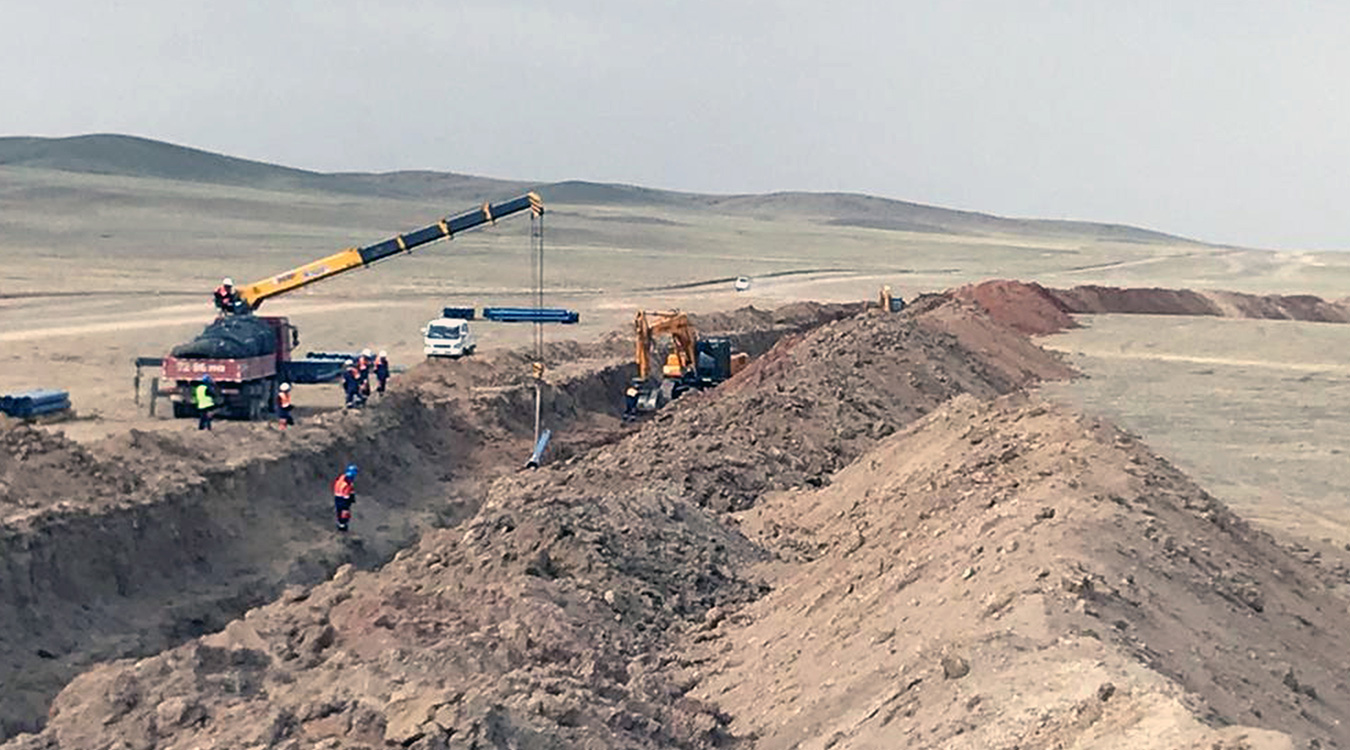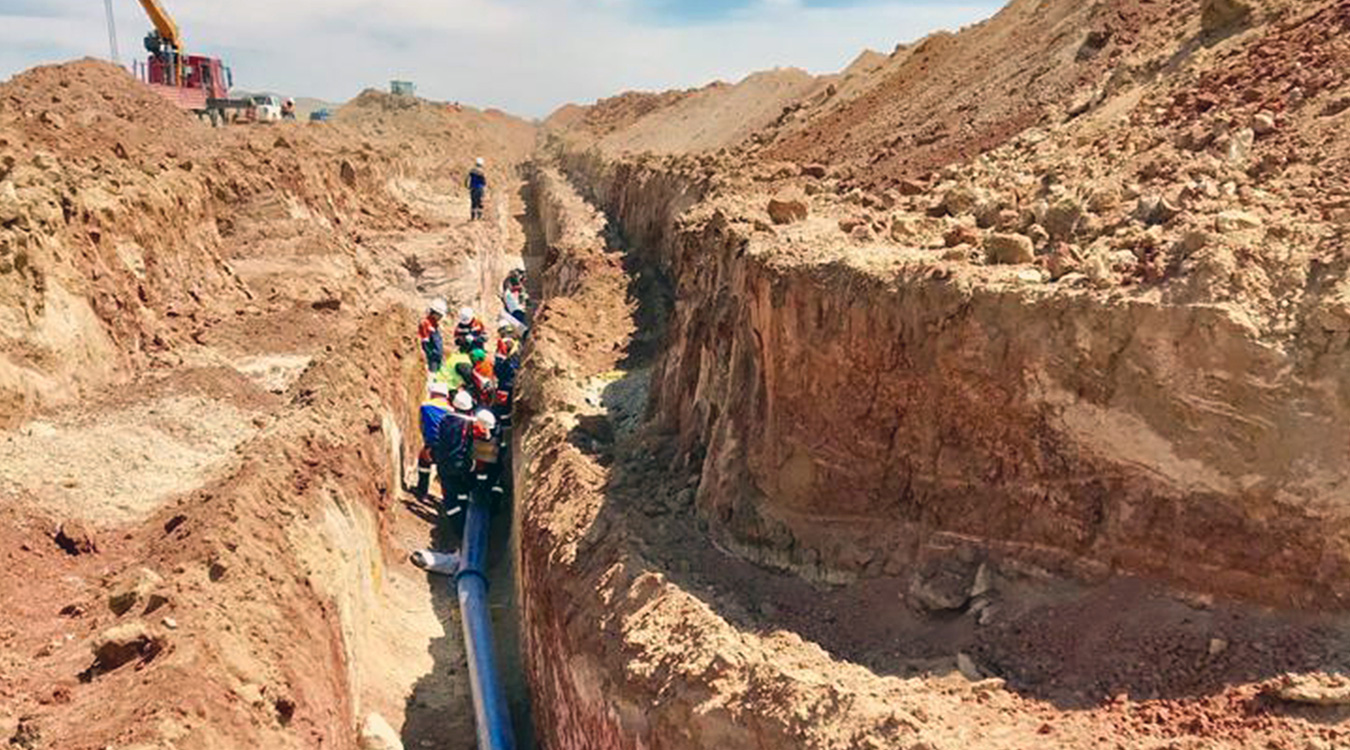The framework conditions for this project could not be more inhospitable. In winter, temperatures fall to -40 degrees Celsius, in summer they reach almost 30 degrees. The real challenge in working in this region, however, is the frozen soil, which holds only a relatively small window of time for the excavation activities and work. The traditional Tyrolean company from Hall presents itself as the general contractor of this task. The core of the order is the construction of a drinking water pipeline from a storage lake in the provincial capital of Altai, 55 km away. It is a height difference of 500 meters to deal with. In addition, the pipes have to withstand pressures of over 50 bar and also defy the seismic activity in the region. "We supply and install pipes including water treatment plants and the required pumping stations," explains Andreas Weiler, Sales Manager International of Tiroler Rohre GmbH and head of this mammoth project. Ductile cast iron pipes with a nominal diameter of DN 250 are used here. The Tyrolean pipe manufacturer has overall responsibility for this project as the general contractor. For the planning and construction supervision, ÖSTAP Engineering & amp; Consulting from Vienna, and for the construction work a locally settled enterprise as a partner to be won. The first challenge in this project is the transport of the pipes. Here, the plant in Hall uses trucks to move to Duisburg, where pipes and fittings are loaded onto the railway. The world-famous Trans-Siberian Railway then continues to Mongolia. In Ulanbaatar, the Mongolian capital arrived, the reloading is done on trucks. The onward transport then leads the pipe columns over partly unpaved roads to their destination. In order to ensure that the pipes are unloaded as easily as possible at the destination, own loading sleds were designed for this project. The water for the drinking water supply of the provincial capital is taken from a lake located at 1,700 m above sea level near Taishir
Due to the enormous frost on three quarters of the year in this region, water extraction takes place at a depth of over 14 meters. After the treatment of the water, it will be pumped through ductile iron pipes over 55 km to Taishir, which is located at an altitude of 2,200 meters above sea level. The adverse climatic conditions are the reason that construction work in this region only between May and October are possible. To prevent freezing of the water in the pipes, the water pipe is installed at a depth of over four meters. In addition to extreme temperature differences and blizzards in winter, due to the proximity to the Gobi desert, even in the supposedly warmer seasons, weather conditions such as sandstorms can be expected, which make construction difficult. "Especially during pipe installation it is important that everything is as clean as possible so that the gasket is in the right position. If the sockets on which the pipes are put together are totally dusty and full of sand, they must first be cleaned, "says Weiler of the additional effort that must be made here. The construction of this project is currently in full swing and on schedule. The construction project should be completed by mid-2020. The project has a contract volume of 14 million euros and is financed by an Austrian development aid loan.
Safe water supply.
www.trm.at


